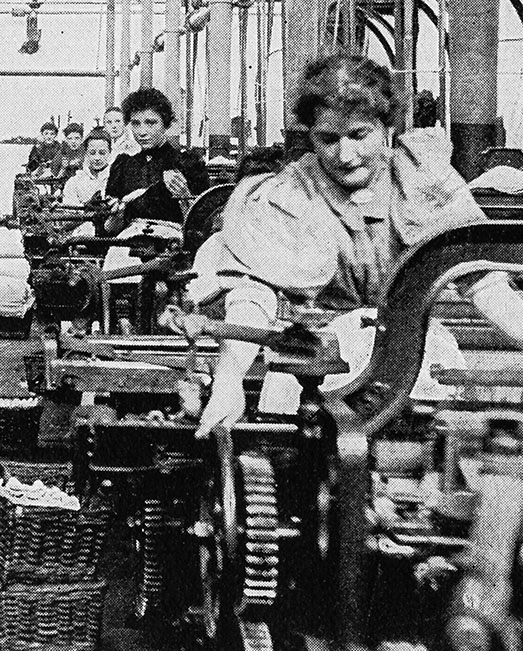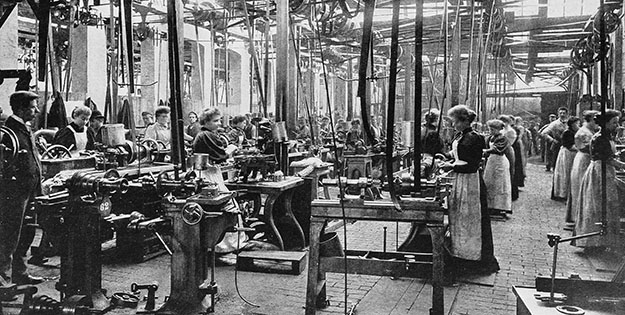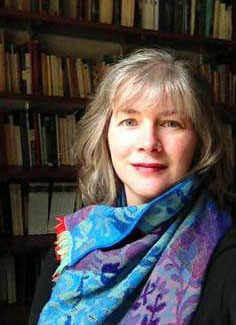Global
Copyright@ Australian Catholic University 1998-2026 | ABN 15 050 192 660 CRICOS registered provider: 00004G | PRV12008
Copyright@ Australian Catholic University 1998-2026 | ABN 15 050 192 660 CRICOS registered provider: 00004G | PRV12008

The idea that history is the story of great men accomplishing great deeds has been well and truly debunked. The stories of peasants and foot soldiers, priestesses and factory workers are gradually emerging as social historians research the untold stories of the past.
Perhaps the largest lacuna in traditional history is the absence of women’s experience. With few exceptions, women were absent from history books. Generations of historians regarded them as irrelevant because they did not often wield legal or military power.
Mining the historic records for evidence of women’s lives and gender relationships offers a rich seam of insights. ACU’s new Gender and Women’s History Research Centre is pioneering this work, led by Professor Susan Broomhall, who is a specialist in early modern European history and its global interactions.
Contrary to popular belief, Professor Broomhall said there is no shortage of women’s voices in the past. Historians just have to listen for them.
“Every generation reviews history and asks new questions of it, questions that relate to where we are now. Women’s history is not a distinct form of history, it’s about coming at the history from a different angle and asking different questions.”
Historians who focus on women’s history look at the diverse range of women’s experience, including poor women and those in typical women’s occupations such as textile workers or midwives.
“I’m not saying nobody ever looked at Queen Elizabeth. Great women in history have always been studied. They were often treated as honorary males,” said Professor Broomhall.
“But women are as diverse a group as you can imagine. They have different identities that have also been shaped by class, race, faith so their experience is very much influenced by what we would today call intersectionality. Women’s history looks at women’s stories of diverse experience.”
It can be harder to find the voices of ‘ordinary’ women than of kings or generals – just as it can be harder to tell the stories of working-class men. In early modern Europe many working-class people were illiterate and could not record their own stories. But Professor Broomhall said the idea that there are no records of women’s live is “patently untrue”.
“Women are there if you choose to look for them. We do a lot of work to debunk the idea they can’t be found. You just have to think a bit more laterally. You might need to read against the grain in a document that is written by men and framed for men’s interests.”
Court documents offer a rich resource for finding out what was going on in women’s lives. The judges, lawyers and scribes are all men but women are defendants, victims of crime and witnesses. While women’s voices are mediated through a record taken by men, the documents often reveal swathes of female experience which differ greatly from the idealised image found in religious instruction or male-authored advice handbooks.
“People still sometimes have an idea that women lived by the discourse that was written for them by men so they were chaste, silent and obedient. That might have been the way some particular male authors liked to see them. But actually, the documents show women doing everything under the sun as they do now. They are criminals, thieves and murderers. They are travelling and running businesses. They are writing to popes and to kings and telling them how they should run their empires.”
Letters are an important source for women’s history and often reveal that women were a very strong influence behind the throne, directing male action and setting up alliances through relationships.
“In the early modern period, elite women are the great letter writers. In leading families, we often find men composing extremely short letters while women are writing four or five pages. They are the node points of family contact,” said Professor Broomhall.
“It’s a very exciting space because it hasn’t previously been recognised that women are wielding a lot of power in how they manage family relationships. They are setting up alliances, through marriage and information networks, and frequently reminding men of their responsibilities in relation to particular connections.

“We often think about power as being represented by men in parliament or as kings but that’s only one form of power. Having agency to shape your own life and the lives of others is also power and we see through their letters that there were highly literate women who were members of aristocratic dynasties actively using their writing to secure the future of the dynasty.”
Previous generations might have dismissed the content of these letters as “gossip”. Contemporary women’s histories see it as powerful information exchange which makes women key communication nodes in shaping political discourse.
Women also pioneered novel-writing and their literary works provide a source of information about women’s lives, as does the surrounding material on what is published or rejected and how women hide or are acknowledged as writers. Broomhall gives the example of Marguerite de Briet, who wrote under the pseudonym Hélisenne de Crenne in the early 16th century. She was France’s first novelist and wrote about love, marriage and adultery from a female perspective.
Seeing history through women’s eyes changes what is important. Professor Broomhall said that among the most important historic dates ever for women was the discovery of the contraceptive pill in 1954.
Until then, reproductive issues shaped women’s lives – though not necessarily in the same way as they do for modern women. Multiple pregnancies, child mortality and the threat of dying in childbirth were major determinants of women’s experience, said Professor Broomhall.
“Most women in early modern times would have known at least one woman who died in childbirth, so that shaped a fundamentally different way of thinking about your life and your life course.”
On the other hand, managing menstruation was less relevant for women who spent much of their lives pregnant or breastfeeding.
The idea that childbearing responsibilities meant women did not have an important role in the economy is another claim that has been debunked. Most women were involved in paid work and certain industries were dominated by women.
Professor Broomhall studies the 15th Century textile trade in Europe, where she has found records of entirely women-run guilds and evidence of women’s profound effect on the economy, culture and environment. Elite women were pivotal in the development of the silk trade in Europe and North America as entrepreneurs who directed the replacement of swathes of native trees with mulberries for silkworms.
As historians become more interested in the relationship between humans and the environment, the mulberry trees provide a particularly interesting counter-example to the narrative of men as the business pioneers and destroyers of the landscape. It also challenges the idea that women who succeeded in business should be celebrated, as men have always been.
“Five or ten years ago these silk entrepreneurs would have been seen as great women because of their business leadership. Now there is almost a flip. We are conscious of how they were destroying the landscape. So, what matters to us most about this example now: gender, class or environment?” said Professor Broomhall.
The reading of maleness as aggressive or destructive is an example of the broader field of gender studies, which also sits under ACU’s new research centre.
Professor Broomhall said gender studies grew out of women’s history. As historians recovered women’s experiences and saw how gender ideologies had structured their lives, they became aware that there must be a corollary in expectations of men and masculinity.
Historians are now beginning to re-examine male experience through a gender lens and to look at the way gender assumptions determined life experiences. But Professor Broomhall warns gender studies must not replace women’s history.
“In expanding our remit to include how gender constructed the lives of men, we can’t lose sight of women. There is still so much more work to do in recovering women’s experiences of the past.”
Professor Susan Broomhall leads the Gender and Women's History Research Centre in ACU’s Institute for Humanities and Social Sciences. She is the author of numerous books, including Women and the Book Trade in Sixteenth-Century France; Women's Medical Work in Early Modern France; and Women and Religion in Sixteenth-Century France.

Passionate about history? Explore the humanities and social sciences degrees available at ACU.
Copyright@ Australian Catholic University 1998-2026 | ABN 15 050 192 660 CRICOS registered provider: 00004G | PRV12008